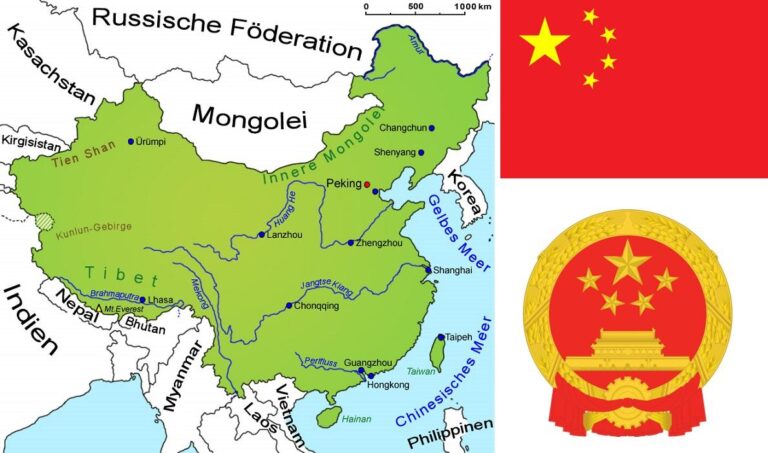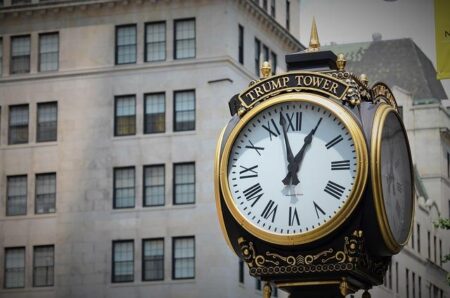Amid escalating tensions in global geopolitics, China is increasingly seeking to capitalize on internal divisions within the United States, particularly the lingering turmoil surrounding former President Donald Trump. According to The Washington Post, Beijing aims to leverage the political upheaval to rally international leaders against the prevailing U.S.-led world order. This strategic push underscores China’s broader efforts to reshape global alliances and assert its influence on the international stage as Washington grapples with domestic challenges.
China Seeks to Capitalize on US Political Uncertainty to Strengthen Global Alliances
Amid the prolonged political unrest in the United States, Beijing is actively recalibrating its foreign policy strategies to exploit the perceived instability. Chinese officials have intensified diplomatic outreach to key global players, emphasizing themes of sovereignty, non-interference, and multilateral cooperation as alternatives to the U.S.-dominated global order. This approach is designed to foster a coalition of nations disillusioned by the unpredictability of American leadership, positioning China as a reliable and steady partner on the world stage.
Recent visits by Chinese diplomats across Europe, Asia, and Africa have underscored Beijing’s push to create new avenues for economic and security partnerships. Strategic engagements include:
- Bilateral trade agreements with emerging markets aiming to reduce dependency on Western financial systems
- Joint infrastructure projects under the Belt and Road Initiative to boost connectivity and influence
- Coordinated stances in international forums challenging U.S.-led sanctions and policies
| Region | Recent Diplomatic Activity | Strategic Objective |
|---|---|---|
| Europe | High-level talks with Germany, Italy | Expand technology and trade collaboration |
| Africa | Infrastructure investments in Kenya, Nigeria | Secure resource supply and regional influence |
| Asia | Military confidence-building measures | Strengthen security partnerships |
Strategic Efforts to Counter US Influence Highlighted Amid Trump Era Turmoil
Amid the political chaos sparked by the Trump administration’s final years, Beijing has intensified its strategic initiatives to reshape global alliances, aiming to reduce U.S. dominance on the world stage. Chinese officials have actively engaged in diplomatic outreach, promoting a narrative that questions the reliability and stability of the traditional U.S.-led international order. This approach includes reinforcing multilateral cooperation forums and encouraging regional powers to explore alternatives to Washington’s influence.
- Strengthening economic ties with key developing nations through initiatives like the Belt and Road to create dependencies outside of U.S. systems.
- Promoting regional security partnerships to fill power vacuums and offer counterweights to U.S. military presence.
- Leveraging information campaigns that highlight U.S. domestic instability to sow doubts among allied countries.
| Region | Strategic Focus | Current Progress |
|---|---|---|
| Asia-Pacific | Security alliances & trade | Growing partnerships with ASEAN nations |
| Africa | Infrastructure investment | Major projects under Belt and Road |
| Europe | Diplomatic engagement | Mixed responses but expanded forums |
Analysts Recommend Enhanced Coalition Building to Resist Beijing’s Diplomatic Push
Experts emphasize the urgent need for a more cohesive and strategic alliance among democratic nations to counter Beijing’s expanding diplomatic influence. In recent months, amid the internal political upheaval in the U.S., China has intensified efforts to exploit the perceived vulnerability of the traditional U.S.-led order. Analysts warn that without a unified front, Beijing’s narrative of a shifting global balance could gain traction, reshaping international norms and institutions to its advantage.
Key recommendations from policymakers include:
- Strengthening bilateral and multilateral partnerships across the Indo-Pacific region.
- Enhancing intelligence-sharing frameworks to preempt diplomatic coercion tactics.
- Promoting economic diversification to reduce dependency on Chinese markets.
- Increasing investment in regional development initiatives that reflect shared democratic values.
| Area of Focus | Proposed Action | Expected Impact |
|---|---|---|
| Diplomatic Coordination | Joint summits with allies | Unified messaging against coercion |
| Economic Strategy | Trade agreements enhancing resilience | Reduced economic leverage by China |
| Security Cooperation | Expanded intelligence sharing | Early detection of influence operations |
In Summary
As China seeks to capitalize on political uncertainty in the United States, its efforts to rally global leaders against the existing U.S.-led international order highlight the shifting dynamics of global power. Whether Beijing’s strategy will succeed remains uncertain, but the developments underscore the growing challenges facing American influence on the world stage. Observers will continue to monitor how these geopolitical maneuvers unfold amid an increasingly complex and competitive international landscape.




